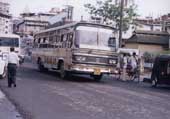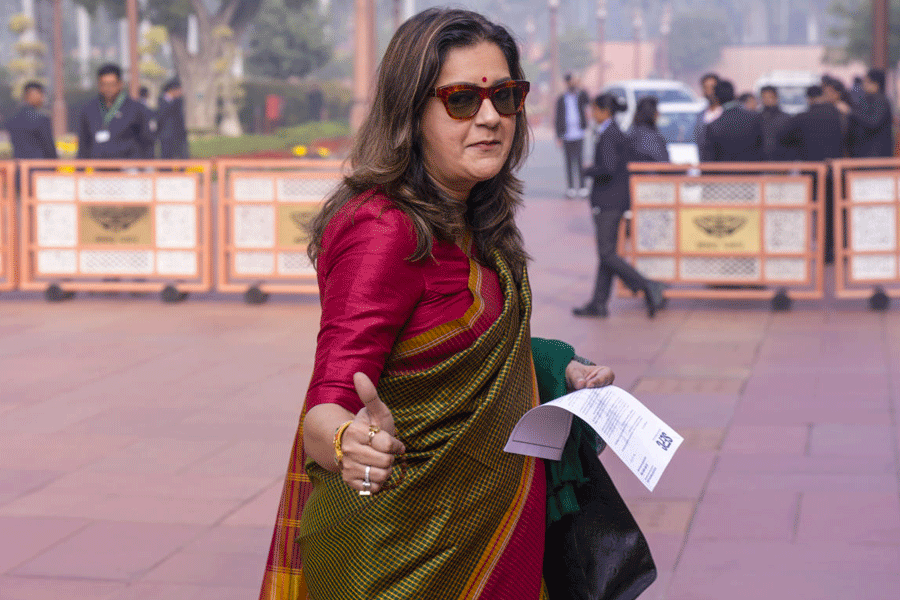 |
| Picture by S.H. Patgiri |
Khagen Mahanta
A sprinkling of rain and the smell of the earth set the mood for an exhilarating encounter. A minute later, Khagen Mahanta walks into his living room looking very casual in his ubiquitous Nepali cap. “This is my crown,” he explains.
On a delectable trip down memory lane, Mahanta recounts his performance at the Royal Hall in Kathmandu in front of King Mahendra of Nepal in 1965. “I had picked up a Nepali folk song from two wandering minstrels at Bhaktapur en route to Mount Everest. I sang the song in front of the king. After the song was over, Dharam Raj Thapa, better known as the king of Nepali folk music, honoured me on stage by taking off his cap and placing it on my head. I considered it as an honour to Indian music and I have been wearing the cap since,” he says.
His pulsating zest for life makes Khagen Mahanta a captivating persona. Also known as Bihu Samrat, Mahanta has found his sanctuary in the folk tunes of Bihu songs. For him, Bihu is the marriage of Thundercloud, the groom, and Mother Earth, the bride. “During Bihu when the monsoon sets in, bordoichila, a thunderstorm, softens the earth and makes her fertile,” says Mahanta.
With a wistful look, he says, “There is life in Bihu. There is a strange literature in its oral tradition”. He discovered the pulchritude of Bihu while on a trip to Upper Assam where he was invited as a guest artiste.
“I heard the loud and rustic Bihu songs in their real flavour and was inspired to stay on as it was harvest time. I visited many hamlets to get the real taste of Bihu. Later, I recorded around 25 extended playing records of Bihu songs,” says Mahanta.
The ninth born of a Satradhikar (head of Vaishnavite culture)’s family, Mahanta was ostracised at one point for singing Bihu songs, which was considered lowly and trite. But his father, Harendranath Mahanta, who was a progressive man, defended his son and encouraged him to carry on.
People still throng to listen to the soulful renditions of this man responsible for popularising unadulterated Bihu on gramophone disc, cassettes and on stage. Mahanta has recorded more than 100 folk, traditional, devotional, sugam sangeet, progressive songs and people’s songs on gramophone discs. More than 350 other songs have been recorded in 50 cassettes.
The Sangeet Natak Akademi award-winning singer laments that adulteration has crept into Assamese folk music with electronic gadgets. “It is unfortunate that the traditional instruments have taken a backseat. The new generation of Bihu singers are adding urban colour to this folk art and many pirated versions are coming up,” he laments.
Ordained into music at a tender age, he started learning classical music and the tabla. His father, who was the head clerk in the department of forests, was also an authority in Sattriya music. After his schooling from Nagaon, Mahanta went on to do his intermediate from St Edmund’s College in Shillong. “This was the turning point and I participated in the inter-university youth festivals in Delhi and Mysore, the all-Assam inter-college music competition under Gauhati University,” says Mahanta.
Later, in the course of his musical odyssey, he came in touch with two artistes, Rudra Barua and lyricist Keshab Mahanta. It was Keshab Mahanta’s song Kolore Patat Kowri Pare set to tune by Rudra Barua and sung by Khagen Mahanta that set the latter on the road to success.
“I have been singing this song since 1957. People love to hear it over and over again,” he says.
Mahanta prefers to keep his music simple and devoid of superfluous ornamentation. His evergreen song Koi Jua Dakuwal, Khuj Kiyo Kabal, Jhunuk Jhunuk Kiyo Nu Baje on the dakual (postman) by Lakshminath Bezbaruah had only jhunuka (bells) and the strumming of a guitar in the backdrop.
“I go deep into the lyrics and then decide what tune should be infused into it. The tune should stir the heart and sound beautiful. “It’s very rarely that people do not understand my songs,” says Mahanta, adding that nowadays, the chord combination is done first and the song then forced into it.
His songs speak volumes of the rustic social fabric of village life in Assam — the jovial relationships, the rifts in social ties, weddings and festivals. Most of his popular songs have been written by Keshab Mahanta. He had been featured thrice in the national programme of music from All India Radio (AIR), Delhi. One of his compositions has been broadcast from all the AIR stations in the country. AIR, Guwahati, bestowed him with the title of grade-A artiste.
As a resource person, he had participated in many seminars and workshops in East India. “I am now doing programmes with a view to popularising science through folk art. The productions have gained popularity in Assam, West Bengal and Orissa,” says Mahanta. Two of his songs had been accepted as a hymn of Assam Olympic Association (AOA) and All-Assam State Transport Corporation workers’ union in 1967.
In retrospect, he remembers a stirring incident of 1961 when he performed at Park Circus Maidan in Calcutta as part of the World Peace Festival. The Language Movement of the sixties had created a feeling of animosity among the Bengalis and the Assamese. He recalls, “Keshab Mahanta and Ratna Ojha were sitting among the audience. At the end of the show, a Bengali sitting next to them heaved a deep sigh and wondered how we, who could sing so well, could kill people? This was the best compliment I have ever received,” says Mahanta with a smile.
His soulmate Archana’s name is always taken in the same breath. He says, “Whenever we went to the interior villages, the small children would flock us and ask us — are you Khagen Mahanta Archana Mahanta?”
“I found a real artiste in her,” he says. The couple was invited to the US and they performed in many of the states in 1993 and the United Kingdom in 1996. They also travelled to 13 disturbed border districts of Assam to propagate the message of life, love and peace in 2002.
A versatile man, Mahanta has directed the music of four films — Meghamukti, Mainajan, Juj (awarded Rajat Kamal in 1990) and Ishi Ujagar (telefilm). As a playback singer, he has so far rendered his voice in 23 Assamese films. As an actor, he played a major role in the Assamese film Shakuntala in 1961.
Disillusioned by the prevalent violence and killings, he says, “The sound of a drum is more powerful than a bomb. The sound of a clarion (pepa) is more piercing than the sound of a bullet.” Declining affiliation to any political party, he says, “My only party is my gaan (song) party.”
His unwavering faith in mankind places him above the rest. An eternal romantic, Mahanta recalls one song which he feels is an intense personal experience for everyone: Aaji Sage Dekhisa Tumi Mur Sapun, Aaji Barikhar Pratham Barakhun.... (You must have dreamt of me today, it’s the first shower of the rainy season).











